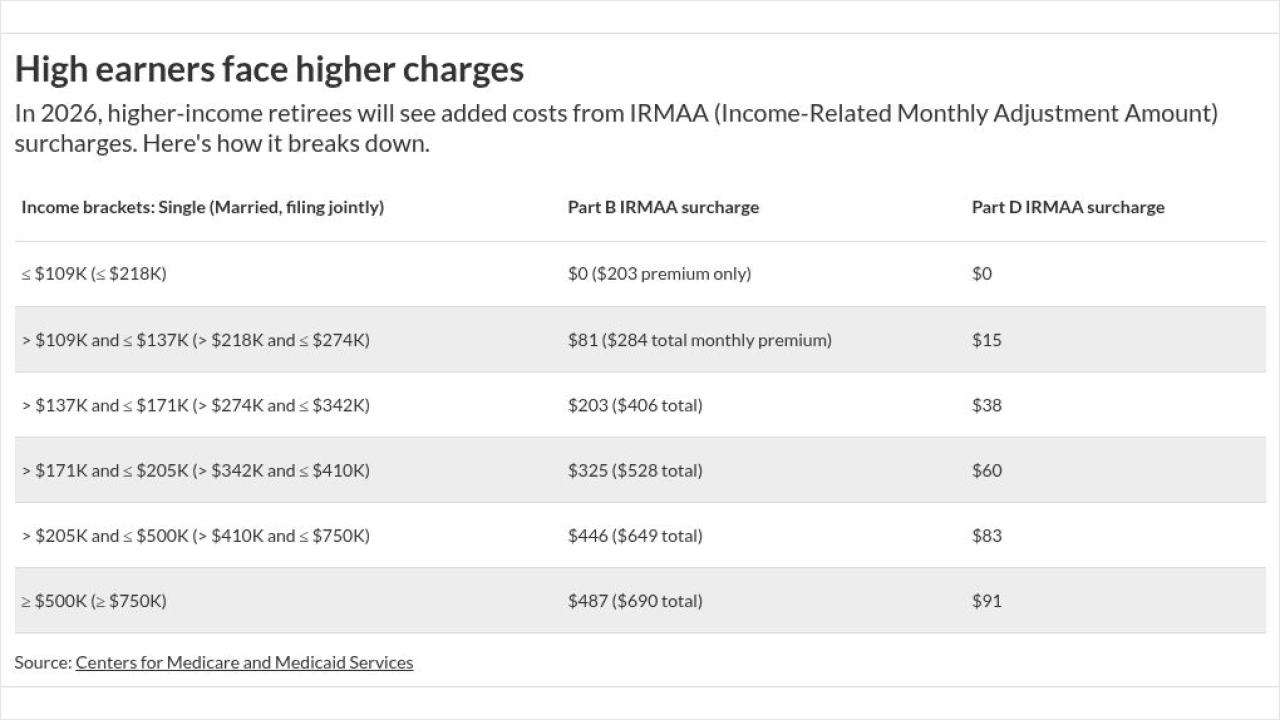Our weekly roundup of tax-related investment strategies and news your clients may be thinking about.
Clients should develop a proactive strategy that will allow them to minimize or avoid taxes on income from their portfolio after they retire, an expert from TheStreet writes. "A successful strategy will enable you to take tax-free distributions from your traditional IRA (up to the standard deduction), Roth IRA, Social Security as well as the cash value life insurance," the expert writes. "Doing this correctly will put you in the 0% tax bracket, giving you peace of mind and protection, not to mention more money, even in the face of dramatically higher taxes."

REITs will not gain significantly from the corporate tax cuts under the new tax law, according to this article on Barron's. That's because REITs are pass-through entities and pay a small income tax. However, REIT holders can gain from the law, as it allows them to deduct 20% of dividends that they receive, and this will result in a lower maximum tax rate.
Clients who unexpectedly receive a windfall or incur savings from spending cuts are advised to use the money to maximum advantage and that is to develop the best retirement income plan, an expert on Kiplinger writes. For example, clients who have $1,000 in newly-found savings may want to lease a vehicle for $80 more monthly or boost payments for more comprehensive long-term care insurance plan or a life insurance policy, writes Golden Retirement Advisors CEO Jerry Golden. "These actions might also allow you to comfortably take larger monthly payments from your retirement account today,” Golden writes. “In addition, insurance offers powerful tax benefits because the proceeds are received tax-free.”
-
Advisors should contact every client who did a Roth conversion in 2017 to discuss a key change in tax regulations, Ed Slott says.
December 4 - FP magazine
It’s the Roth’s 20th birthday. Where is everyone?
November 20 -
IRA balances are up, and so are divorces, particularly among baby boomers. These so-called gray divorces have roughly doubled over the past 25 years, according to the Pew Research Center.
August 31
Many taxpayers are less likely to itemize deductions including those for charitable donations, as the new tax law has made it less valuable by raising the standard deduction, according to this article on MarketWatch. However, retirees who are at least 70 1/2 years old can donate to their favorite charity and still get the tax benefit by taking a qualified charitable distributions in their IRA. A QCD will enable them to donate an amount directly to a qualified charitable organization and count the amount towards their required minimum distribution without adding it to their taxable income.
The Minnesota Society of CPAs recently conducted its annual CPA member survey about the most strange and unusual tax deductions proposed by clients. The responses included everything from pets and wedding rings to gifts not given.
Above-the-line deductions are tax breaks that taxpayers can claim even without itemizing their deductions on their returns, according to this article on Motley Fool. Some of these tax breaks are the tax deductions for contributions to traditional IRAs and health savings accounts. Other above-the-line deductions are the tax breaks for moving expenses, student loan interest and educator expenses. Clients who won't opt for itemized deduction can still deduct alimony on their 2017 tax returns, but they can no longer get this tax break staring on their 2018 returns.






